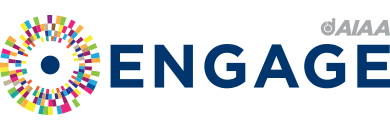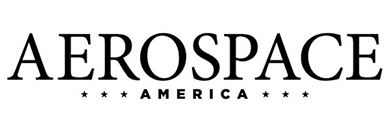Things to Do When You’re a Teleworking Aerospace Engineer or Aerospace Engineering Student
Many aerospace organizations are having their employees work from home to mitigate exposure to the coronavirus and keep communities, especially the most vulnerable members, safe and healthy. AIAA applauds and supports this decision.
We encourage everyone to follow the coronavirus safety guidelines set out by the WHO and CDC.
We understand you still have work to do and may be looking for new ways to connect while you telecommute. We can help.
For the latest updates about AIAA events and forums that have been impacted by the coronavirus pandemic visit: AIAA.org/coronavirus
If you’re a teleworking aerospace professional and have children at home, AIAA has some suggestions to keep your budding aerospace engineer busy.
Have time to update your research knowledge? Aerospace Research Central has more than 50 years’ worth of research papers.

Looking to start a conversation and hash out a technical topic? Go to Engage.
Recent topics include:
- The Potential of Space Tourism
- Looking for mentors for The American Rocketry Challenge
- Best Colleges for Aerospace
Engage community is a benefit of AIAA membership
Want to learn something new or brush up your skills? Sign up for online learning.
Looking to broaden your understanding of the latest issues in aerospace? Read Aerospace America.
Current Issue
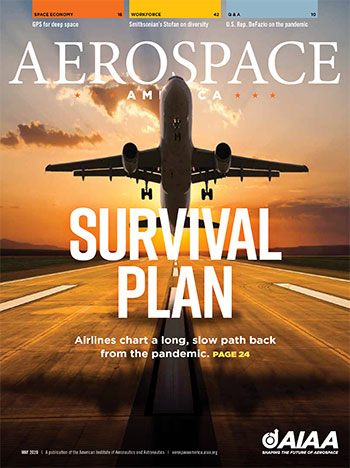
The May 2020 issue of Aerospace America is now live. Don’t miss this month's cover story, "Action Plans," by Cat Hofacker. Also, see if you possess the knowledge to solve this month's AeroPuzzler: Surviving the Fall.
Webinars
-
Space Policy Pod
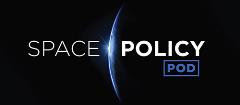 Given the current real-world challenges confronting all of us, AIAA has joined the MITRE Corporation and the U.S. Chamber of Commerce to produce this podcast series to examine events and ideas affecting the space sector. We hope the episodes serve as an enlightening discussion on the relevant topics of the day with insights from key policymakers in the field.
Given the current real-world challenges confronting all of us, AIAA has joined the MITRE Corporation and the U.S. Chamber of Commerce to produce this podcast series to examine events and ideas affecting the space sector. We hope the episodes serve as an enlightening discussion on the relevant topics of the day with insights from key policymakers in the field.
All Episodes | Subscribe! Spotify | Apple Podcasts 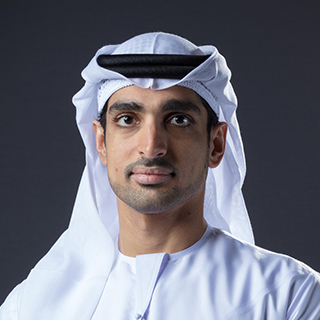 Episode 20: Omran Sharaf
Episode 20: Omran Sharaf
7 April 2021
Emirates Mars Mission (Hope Probe) Project Director, Mohammed Bin Rashid Space Centre
Episode recorded 5 April 2021
Omran Sharaf is Project Director of the Emirates Mars Mission at the Mohammed bin Rashid Space Centre. He and his team are responsible for developing, launching, and operating the Hope Probe, the spacecraft of the mission.
An experienced electronics and systems engineer, Sharaf was responsible for developing and implementing the Command & Data Handling Subsystem (C&DH) for the DubaiSat-1 high resolution LEO imaging satellite. He also headed the development of the C&DH subsystem and payload electronics subsystem for DubaiSat-2, along with being a systems engineer of that project.
Sharaf earned his bachelor’s degree in Electrical Engineering from the University of Virginia, in 2005, and his Master's in Science and Technology Policy from the Advanced Institute of Science and Technology, South Korea, in 2013.
Podcasts
-
Space Policy Pod
 Given the current real-world challenges confronting all of us, AIAA has joined the MITRE Corporation and the U.S. Chamber of Commerce to produce this podcast series to examine events and ideas affecting the space sector. We hope the episodes serve as an enlightening discussion on the relevant topics of the day with insights from key policymakers in the field.
Given the current real-world challenges confronting all of us, AIAA has joined the MITRE Corporation and the U.S. Chamber of Commerce to produce this podcast series to examine events and ideas affecting the space sector. We hope the episodes serve as an enlightening discussion on the relevant topics of the day with insights from key policymakers in the field.
All Episodes | Subscribe! Spotify | Apple Podcasts  Episode 20: Omran Sharaf
Episode 20: Omran Sharaf
7 April 2021
Emirates Mars Mission (Hope Probe) Project Director, Mohammed Bin Rashid Space Centre
Episode recorded 5 April 2021
Omran Sharaf is Project Director of the Emirates Mars Mission at the Mohammed bin Rashid Space Centre. He and his team are responsible for developing, launching, and operating the Hope Probe, the spacecraft of the mission.
An experienced electronics and systems engineer, Sharaf was responsible for developing and implementing the Command & Data Handling Subsystem (C&DH) for the DubaiSat-1 high resolution LEO imaging satellite. He also headed the development of the C&DH subsystem and payload electronics subsystem for DubaiSat-2, along with being a systems engineer of that project.
Sharaf earned his bachelor’s degree in Electrical Engineering from the University of Virginia, in 2005, and his Master's in Science and Technology Policy from the Advanced Institute of Science and Technology, South Korea, in 2013.
Advocacy
Learn more about aerospace advocacy and reach out to policy makers.
AIAA delivers extensive technical expertise and policy guidance to decision makers at the federal and state levels, serving as a reliable resource on a full spectrum of aerospace issues such as satellite launch systems and technology, commercial space activities, airport infrastructure modernization, hypersonic vehicle technologies, aircraft manufacturing, and cybersecurity threats.

